TEETH CLEANING IN HOUSTON, TX

Our team of teeth-cleaning experts operating out of our Houston office is highly effective and takes the routine maintenance of our patients’ teeth extremely seriously. The Academy of General Dentistry recommends two dental check ups a year. This helps keep your gums, teeth and overall oral health in check and is the best way to detect dental problems before they become serious issues. We’ve come up witha formula to ensure you keep your teeth healthy and strong: brush twice a day, floss twice a day, and visit Antoine Dental Center twice a year for a healthier smile.
Why a regular visit to the dentist is important for your health
Visiting a dentist regularly is incredibly important for your oral health because regular visits allow for hygienists and dentists to spot oral health problems as early as possible so that they can be effectively treated. Regularly visiting a dentist near you can prevent many oral health problems via teeth cleanings and other dental treatments that help prevent cavities and gingivitis. Certain medical problems and health conditions can also be spotted at the dentist if they have symptoms that show up in your mouth or teeth. In addition to spotting serious health problems early, a regular teeth cleaning helps you in three ways:
- Tartar Removal
- Aesthetics
- Fresher Breath
Dental cleaning experts
Learn More About Our Services
Chew Good. Look Good. Feel Good.
It can be easy to lose sight of a few important things. One thing which often gets overlooked is the importance of your oral health. At Antoine Dental Center in Houston, TX, we’re proud to offer the convenience of same-day dental cleanings and exams and quality procedures for everything from braces to dental implants. Schedule an appointment and see why our patients love us.
Types of dental cleanings
1. Prophylaxis cleaning
A prophylaxis dental cleaning is a procedure that is used primarily for individuals with good overall oral health who practice good oral hygiene and visit the dentist regularly. The procedure is a routine or maintenance cleaning in which your Houston dentist will remove tartar and plaque from the surfaces of teeth, gums and in between teeth.
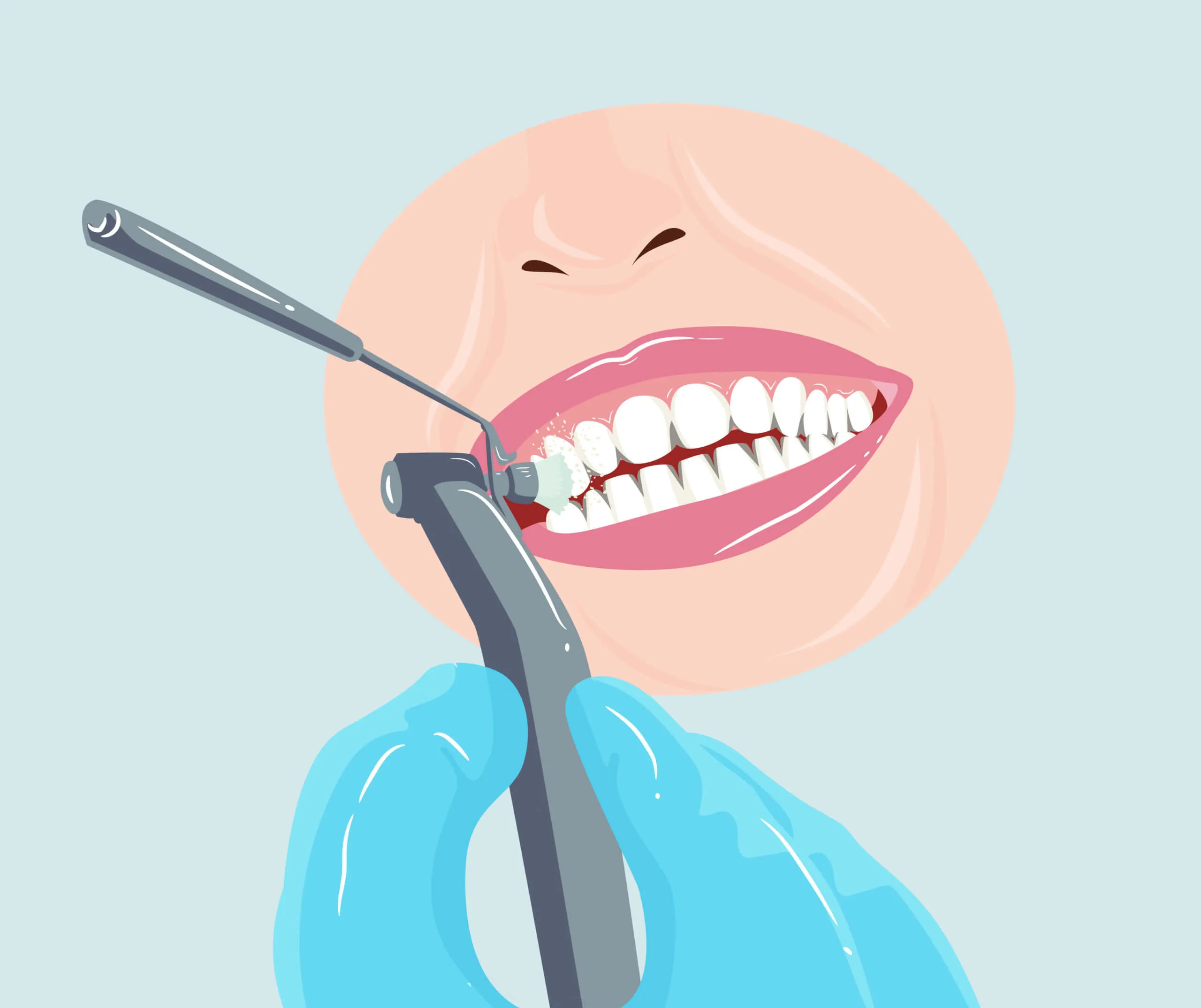
2. Scaling and root planing
Scaling and root planing is a slightly more invasive teeth cleaning procedure and involves a deep cleaning of the gums, gum line and other supporting structures of teeth. This procedure is non-surgical and is recommended for dental patients who suffer from gum diseases such as gingivitis or periodontitis.
Periodontal disease and gingivitis occur when bacteria from plaque colonize on the gum tissue. These bacteria cause inflammation and irritation which can become chronic. In response, the body begins to destroy the gum and bone tissue. When you think about plaque on your teeth, it may not seem very severe, but it can become dangerous and painful. As the gum and bone tissues are affected, the teeth may become unstable or even fall out. Scaling and root planning may require a few visits in order to complete the cleaning.
3. Gross debridement
In severe cases, if a dental patient has not visited the dentist in several years, there is likely to be a fair amount of plaque that has built up on the gums, teeth and in the gaps between the teeth. A gross debridement, which is a deep cleaning used to remove tartar and plaque from all areas of the mouth, is often required for these individuals.
You have likely noticed that the level of your dental cleaning is a direct result of your daily oral habits. The better you take care of your teeth, the less invasive the teeth cleaning will be. It is our hope that you take this to heart and practice good oral hygiene habits.
Ways your dental health affects you
First of all, your dental health is about so much more than a white smile—or even healthy teeth and gums. The state of your dental health can impact your life in many ways; poor dental hygiene and oral health can result in some significant health consequences if left unchecked. Therefore, you need to get regular dental cleanings, brush and floss every day, and do everything you can to keep your teeth and gums as healthy as possible.
The best way to make sure that your dental health is in good shape is through regular dental cleanings with your dentist; in some cases, a deep dental cleaning may be the best option, depending on your current dental health. Dental cleaning is an affordable procedure, especially when you consider the fact that poor dental health can seriously harm your body and require more expensive and invasive interventions in the future.
Dental health can increase diabetes risk
If you have poor dental health, specifically gingivitis or periodontal disease, then you are at a higher risk for developing diabetes. Diabetes is a serious health concern and you need to do everything you can to reduce your chances of developing it; this includes taking care of your teeth and your gums.
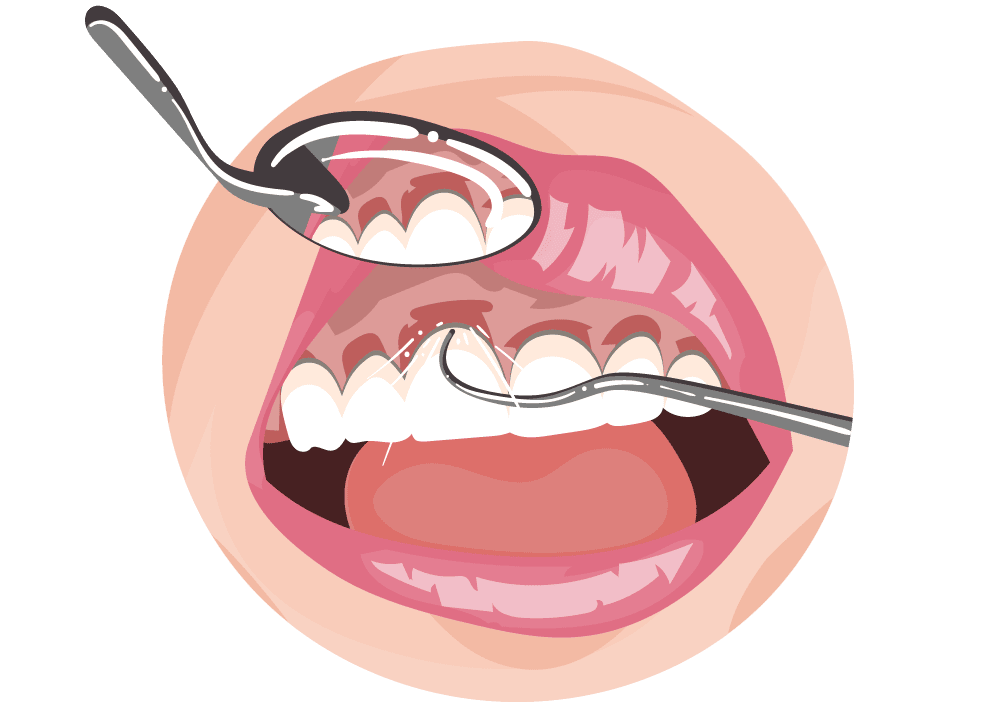
Dental health impacts your heart
Your oral health can have an impact on your cardiovascular health; the presence of cavities, gingivitis, and periodontal disease all elevate your risk for a heart attack or stroke as well as other cardiovascular problems. One reason for this is that gingivitis and periodontal disease all act as a conduit for infections, which can impact your heart.
Dental health protects your natural teeth
The most obvious impact that your dental health has on your body is your teeth—but do you know why it’s so important to protect your natural teeth? Your natural teeth are the best means you have to chew food. Without your natural teeth, you will find it difficult to eat regular food, which can impact your ability to stay healthy, especially as you get older. While you can have your natural teeth replaced with crowns, implants, and bridges, you need to do everything you can to protect your natural teeth for as long as possible.
Dental health impacts infection development
One of the more serious impacts that poor dental health can have on your body is an increased chance for developing infections such as pneumonia or other lung infections. If you have gingivitis, cavities or otherwise poor dental health, then there is a significant amount of bacteria inside your mouth at any given time. If this bacteria gets inside your lungs or bloodstream, it will significantly increase the chances for infections. These infections, especially pneumonia, can even be fatal.
Remember, making sure that you have good dental health is not just about having a white smile—it’s about protecting your teeth, your heart, and your health as a whole. To maintain your dental health, it is critical to schedule regular dental cleanings and follow up with the treatment for gingivitis and other problems as needed.
Dental care basics
If you want to make sure that your dental health is up to standard, we urge you to consider the following dental care basics. These dental care basics will help you improve the state of your oral health and help you maintain good dental health once it has been achieved.
1. Brushing your teeth regularly
You must brush your teeth twice a day. When you brush your teeth, it’s important not to go too fast or hard. You should take about 2 minutes to scrub your teeth, whether you are using a manual brush or an electric brush. When you brush, use a gentle hand; pressing too hard will cause the bristles of the brush to damage your gums. Make sure that you hold the toothbrush at a slight angle to aim the bristles where your tooth meets your gum line. Don’t forget to scrape and clean your tongue, which is a breeding ground for bacteria.
When you are done brushing, rinse your toothbrush with water and store it upright so that it can air dry. You should replace your toothbrush every 3 months; if you have an electric toothbrush, replace the head every 3 months.
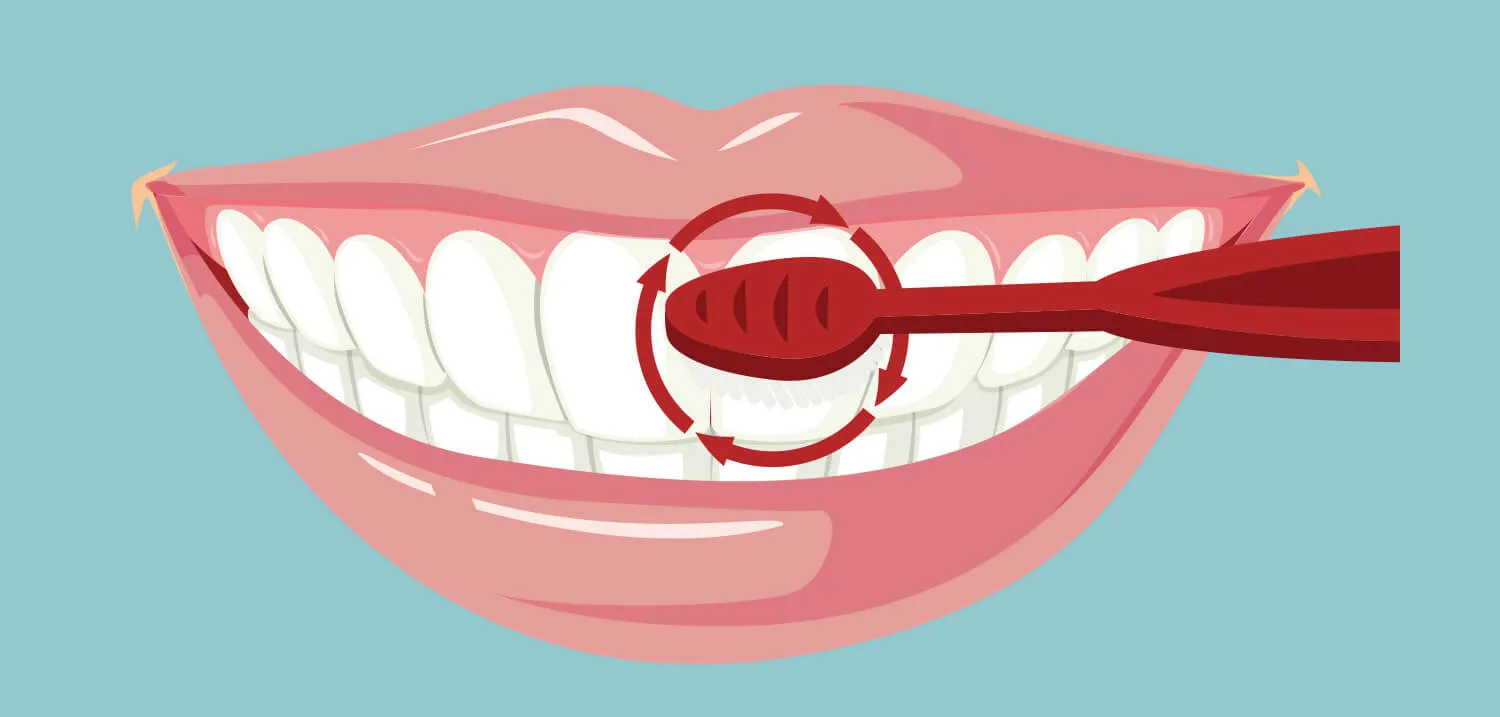
1. Flossing at least once a day
You need to floss at least once a day. Flossing is essential for removing bacteria that is stuck underneath the gums as well as other hard to reach areas.
To floss properly, you will need about 18 inches of floss wound around your fingers. Gently glide the floss between your teeth using a rubbing—not “snapping”—motion; then, gently rub in between each tooth in an up-and-down motion. Do this for every tooth. If you have bridges or other dental work, use the special flossing tools provided or recommended by your dentist.
If you brush and floss correctly on a daily basis, your regular teeth cleanings at your local Houston dentist will be a breeze! On the day of your teeth cleaning appointment, your expert dental hygienist will most likely be the one to perform your routine teeth cleaning.
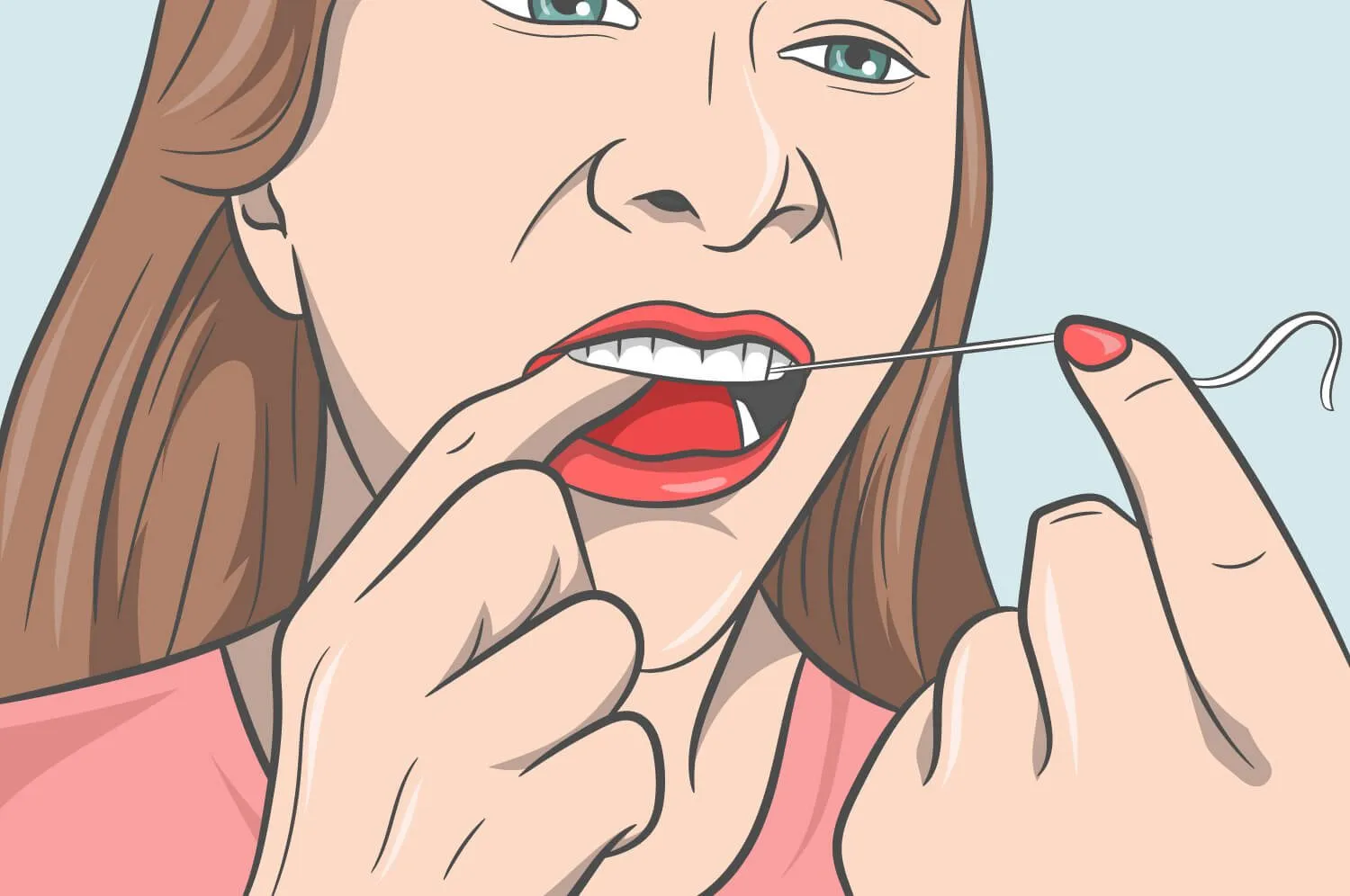
What do dental hygienists do?
On the day of your teeth cleaning appointment, an expert dental hygienist will most likely be the one to perform your routine teeth cleaning. A dental hygienist is responsible for cleaning patient’s’ teeth, conducting examinations for signs of oral health problems such as gingivitis or periodontal disease, as well as providing other basic preventative oral and dental care. Dental hygienists can answer questions and instruct patients on how they can keep their teeth and gums healthy.
What are the duties of a dental hygienist?
- Taking and processing X-Rays
- Removing plaque build-up and tartar from teeth
- Removing stains from teeth
- Applying fluorides and sealants
- Providing education and advice to patients about their dental health, including how to improve their brushing and flossing techniques
- Performing oral health examinations and giving reports to dentists
- Documenting patient treatment plans
What tools do dental hygienists use?
Dental hygienists use a variety of tools in the course of their regular duties.
Some of the most common tools that dental hygienists use include:
- Tooth polishers
- Ultrasonic polishers
- Air polishing tools
- X-ray machines
- Fluoride/sealant applicators
- Scalers
Let’s take a closer look at some of the most important tools that a dental hygienist uses in order to explore how they are used to improve patient’s oral health.
Hand tools
Hygienists use many different hand tools during examinations and treatments. These tools include small mirrors that allow them to see into those hard-to-see areas of the mouth; scalers, which are small hooks with pointed eyes for removing tartar; curettes, which are specifically used to remove tartar beneath the gum line.
Ultrasonic scalers
In addition to hand scalers, hygienists may use ultrasonic scalers, which are pneumatic scalers that use high-powered vibrations to break down and remove plaque and tartar in the mouth. Ultrasonic scalers are gentler on teeth than hand scalers.
Polishers
Hygienists use polishers to gently buff any uneven areas on the teeth, eventually leaving behind an even, smooth surface which improves the appearance of teeth.
X-Rays
Some dental and oral health problems can only be seen with X-Rays. X-Rays allow for hygienists to look for cavities, tooth decay and other signs of damage in the mouth that can’t be seen with the naked eye.
Syringes
A dental hygienist will use a syringe in order to administer local anesthetics to patients who need to be numbed. Local anesthetics are frequently used before deep cleanings as well as for patients who have a particularly low pain tolerance.
Overall, the primary duty of a dental hygienist is to help patients cultivate and maintain good oral health through regular cleanings and treatments, as well as through advice and education.
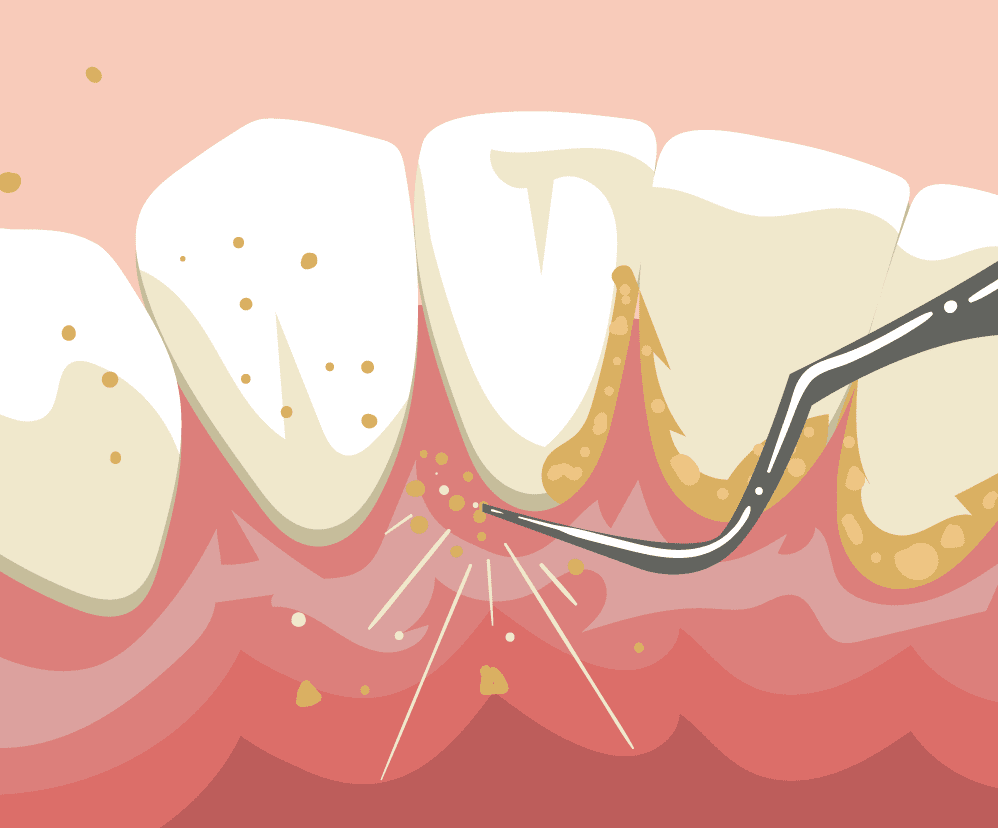
How much do teeth cleanings cost in Houston?
The average cleaning costs $100. However, the price may vary depending on the condition of your oral health and whether you need a basic cleaning or a deep cleaning.
Will my insurance cover my teeth cleaning?
Most insurance plans cover your basic cleaning. Your insurance might partially or fully cover the cost of your deep cleaning.
Chew Good. Look Good. Feel Good.
Your mother always told you to brush your teeth. We agree. Only the Houston teeth cleaning experts go about it in a much more effective manner than mom ever advised. The Academy of General Dentistry recommends two check ups a year. This helps keep gums, teeth and overall oral health in check. This is the best way to detect problems before they become serious issues.



